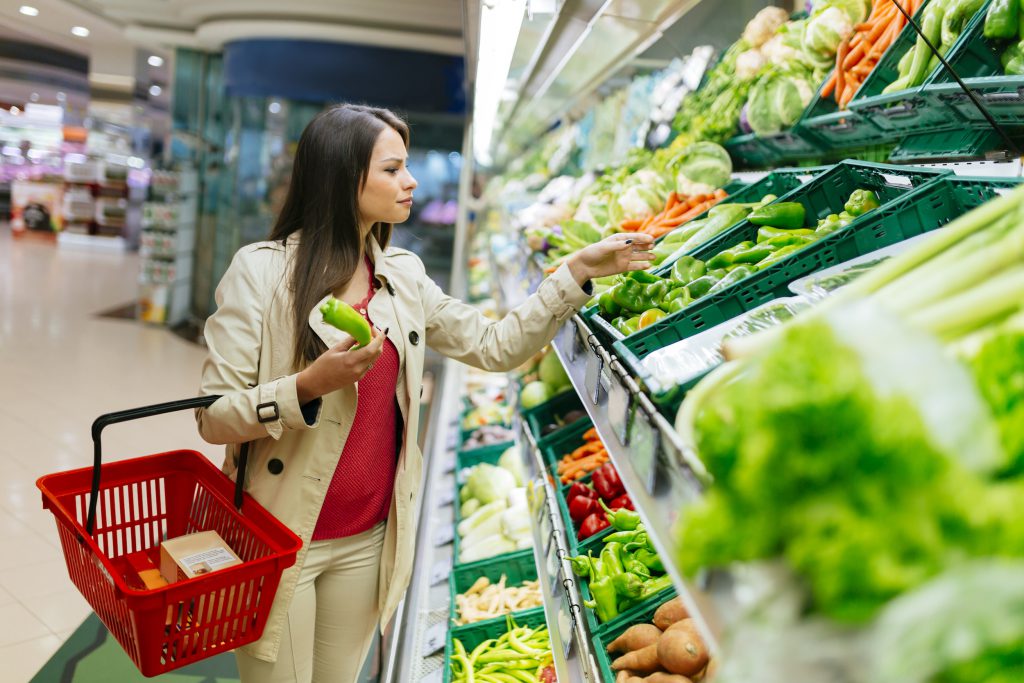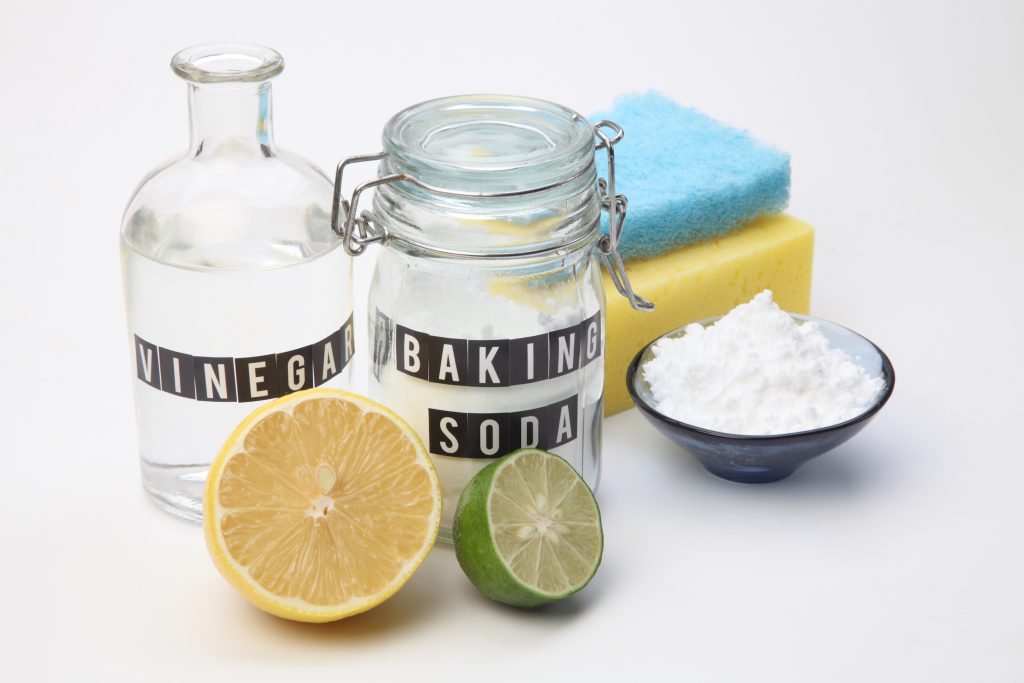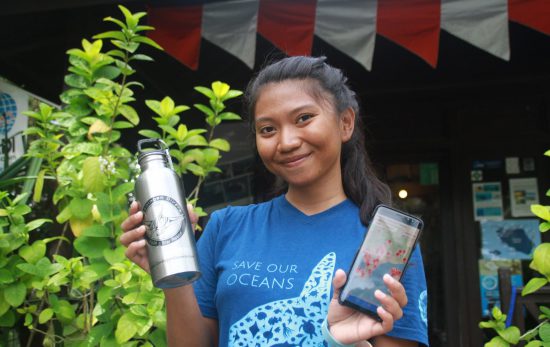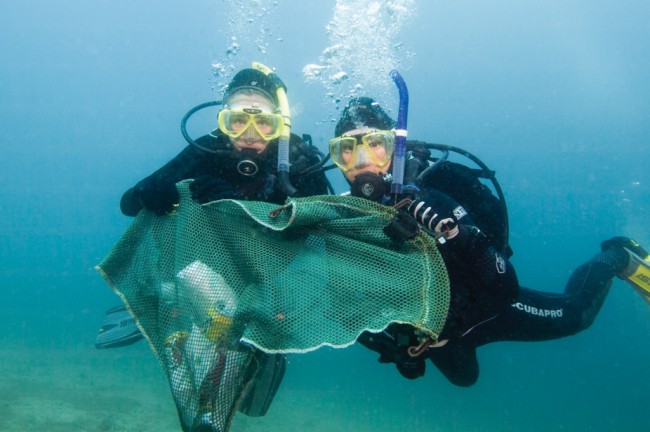Our ocean and coasts affect us all—even those of us who don’t live near the shoreline.
The health of the ocean is intimately tied to human health and determines our global climate and even the quality of the food that we eat, so no matter where you live, your choices matter.
Every adventure starts small, and saving the ocean is no different. Be an ocean hero by making small changes to your lifestyle that will make a big difference for our planet. Try implementing one of the suggestions from the list below into your life each month. The choices you make from the comfort of your own home will add up to a better, healthier world – for all of Earth’s inhabitants.

Reduce Your Carbon Footprint
As carbon dioxide levels rise, our oceans become warmer and more acidic, causing global coral bleaching events. The knock-on effects are even more devastating as coral reefs are home to countless other animals.
Calculate your carbon footprint – the results may surprise you. Here are a few ways to reduce your impact on the environment:
- Limit air travel
- Choose local, seasonal fruits and vegetables
- Eat less meat
- Walk or ride your bike instead of driving
- Use your heater and air conditioner less often
- Dry your clothes on a rack instead of in the dryer
- Keep your refrigerator and freezer full (it saves energy)
- Buy fewer new clothes

Eliminate Toxic Chemicals From Your Home
Before supermarket shelves were lined with spray bottles, people cleaned their homes naturally using vinegar, baking soda, and/or lemon juice. They’re just as effective and far less toxic.
You can save money and the ocean by mixing up your own household cleaning products. They really do work, and DIYers can have fun choosing their own scents. Who wants their kitchen to smell of chemicals? A bit of peppermint, tea tree or grapefruit oil is much more inviting.
If making your own cleaning products isn’t your thing, choose store-bought products carefully. Refer to this guide to eco-friendly commercial products from EWG.
Be mindful of the chemicals you use outdoors as well. Fertilizer run-off can cause massive algae blooms which lead to large dead zones in the ocean. Algae are also a problem in freshwater; people have become seriously ill after algae bloomed in the drinking water supply.
Remember: anything that washes down your drain or into the gutter ends up in local waterways. Prevent toxic chemicals from poisoning your local ecosystem by never using them in the first place.
Reduce Seafood Intake
Saving the ocean can be as simple as looking at what’s on your dinner plate or in your shopping bag.
Fish are an essential part of our planet’s ecosystems, but 90 percent of the world’s fish stocks are used up. Overfishing isn’t the only threat. Some farmed seafood is also a problem: fish crammed into pens pollute the surrounding waters, and vital mangrove habitat has been lost to shrimp farms.

Say “No” to Plastic
Plastic is a menace to marine life. Every year, nearly 9 million tons of plastic finds its way through rivers and streams and into the ocean. Shopping bags, straws, and containers break down into small particles, which fish, turtles, seabirds, and marine mammals accidentally ingest.
It takes hundreds of years for plastic to decompose, and much of it can’t be recycled. Think of all the plastic utensils, straws and coffee cup lids you’ve used in your lifetime, most of them are still around. So…
- The next time someone offers you a plastic straw, fork or bag – just say no
- Use a refillable water bottle and carry reusable utensils
- When plastic can’t be avoided, choose products made from recycled plastic
- Try to reuse plastic items as many times as possible
- Avoid products with excessive packaging
If you’re already avoiding plastic, help others to do the same. Buy eco-friendly gifts such as travel utensils, reusable snack pouches, drinkware and straws. We need everyone to do their part.
Be an Ocean-friendly Pet Owner
- Read pet food labels and consider the environmental impact of your pet’s diet. A beef-heavy diet creates a bigger carbon footprint than one that includes chicken and/or pork.
- Choose pet food that comes in recyclable packaging.
- Never flush cat litter, which can contain pathogens harmful to marine life.
- If you own an aquarium, avoid wild-caught fish, and never release aquarium fish into the ocean or other bodies of water. This practice can cause irreversible harm to the existing ecosystem.
Remember to share your green-friendly habits with your friends and family. It may surprise you how much they will appreciate the insights and help to get started. Challenge them to stand up with you as a PADI Torchbearer by taking at least 20 actions to preserve and protect the seas.
Already following the suggestions above? High-five! Ready for more? Here are 45 ways to live a more eco-friendly lifestyle.



